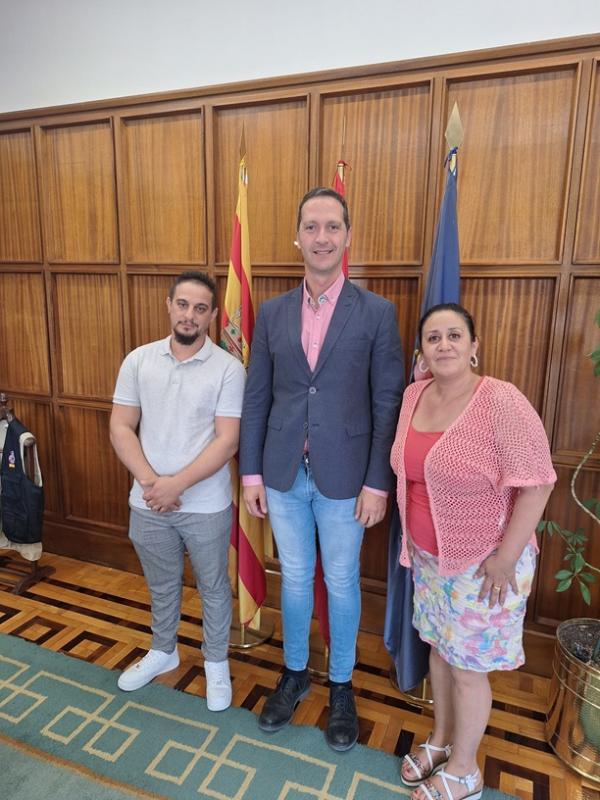Teruel.- The subdelegate of the Government in Teruel, Enrique Gómez, met today with Tamara Clavería, territorial director of Aragón of the Fundación Secretariado Gitano, and with José Gabarre, mediating agent of the Secretariat Gitano in Teruel, to address the implementation of the measures of this program, which until 2028 will mobilize resources amounting to 304 million euros. The Action Plan to improve the employability of the Roma population was approved by the Council of Ministers last Tuesday, at the proposal of the Ministry of Labour and Social Economy.
"In a province like Teruel, where nearly 400 gypsy people are an active part of our society, this Plan is a key tool to break down barriers, offer real employment opportunities and ensure that no talent is wasted for reasons of origin or discrimination," said the deputy delegate. Likewise, Gómez pointed out that this Plan includes a gender equality perspective that caters especially to Roma women.
In this regard, the subdelegate wanted to point out that the implementation of this Plan "complies with Spanish legislation". In addition, he said, "the Gypsy population is recognized as one of the groups of priority attention and, consequently, requires the elaboration of measures that give a response adapted to their situation of inequality and discrimination."
At the end of July, they have advanced, there will be a meeting to extend the aid to the rest of the province and thus improve the employability of the collective.
Measures of the Plan
The Plan contains 14 measures, including measures to improve the access of the Roma population to public employment services and activation programmes for employment; to facilitate the compatibility of training and employment; to specific care for young people; to support labour mobility in rural areas; and to promote quality self-employment.
The objective is to reach the 107,000 unemployed gypsy people estimated for the whole of Spain.
In terms of training, we want to encourage it to be combined with employment, especially among young people and people who have been unemployed for many months. In addition, it also specifically includes training with a commitment to recruitment, which is expected to reach 7,200 people, and training in digital skills, for 26,750 people.
The measures also include, greater support for rural women to improve territorial and social structuring, and recognizing women as the main vector for rural innovation and entrepreneurship. Without forgetting, among other measures, support for entrepreneurship and the modernization of street vending, which will materialize in the modernization of this activity.
